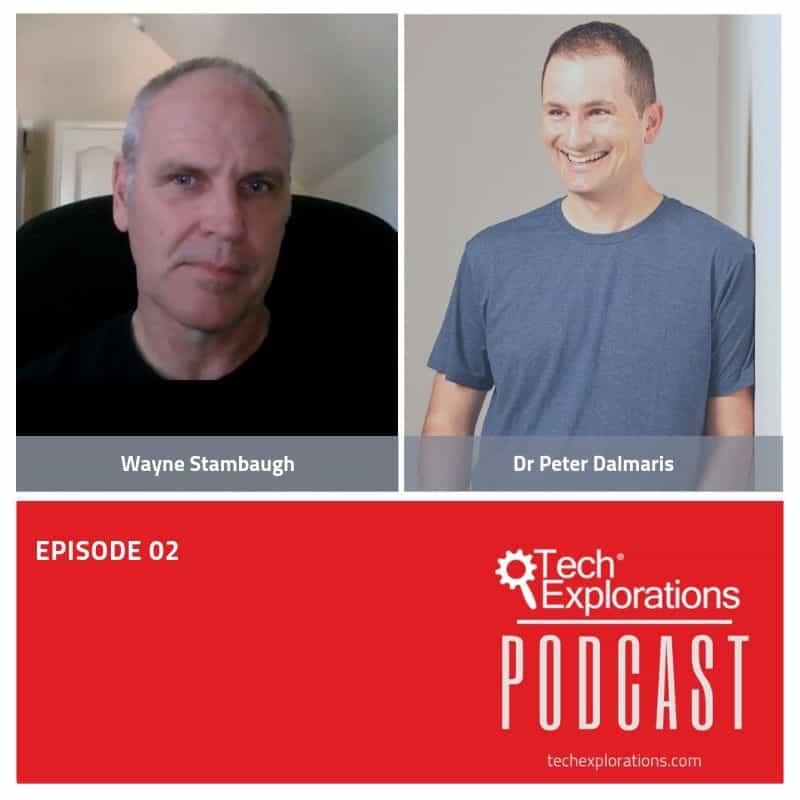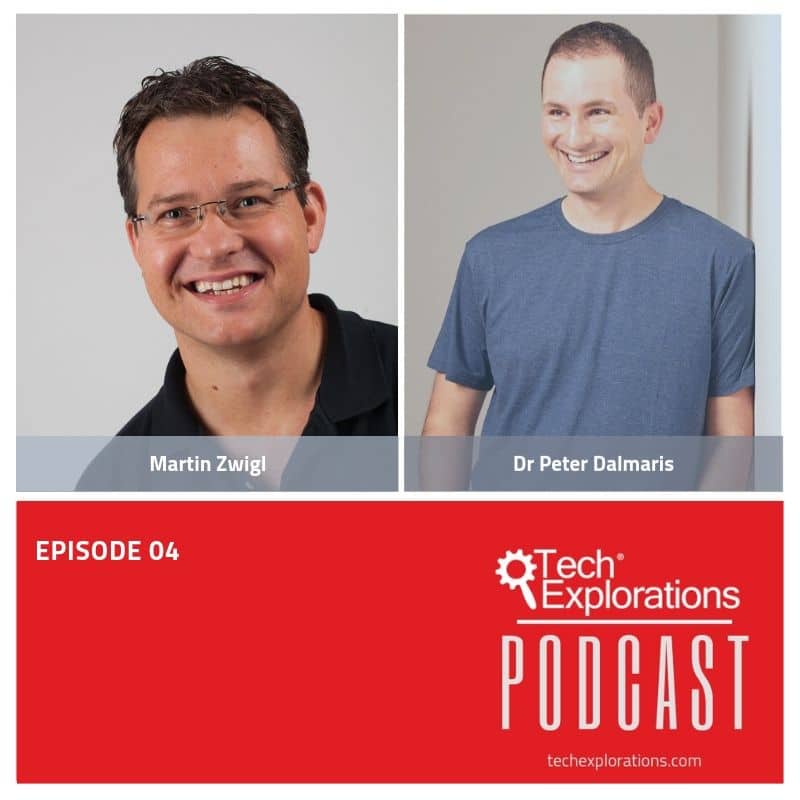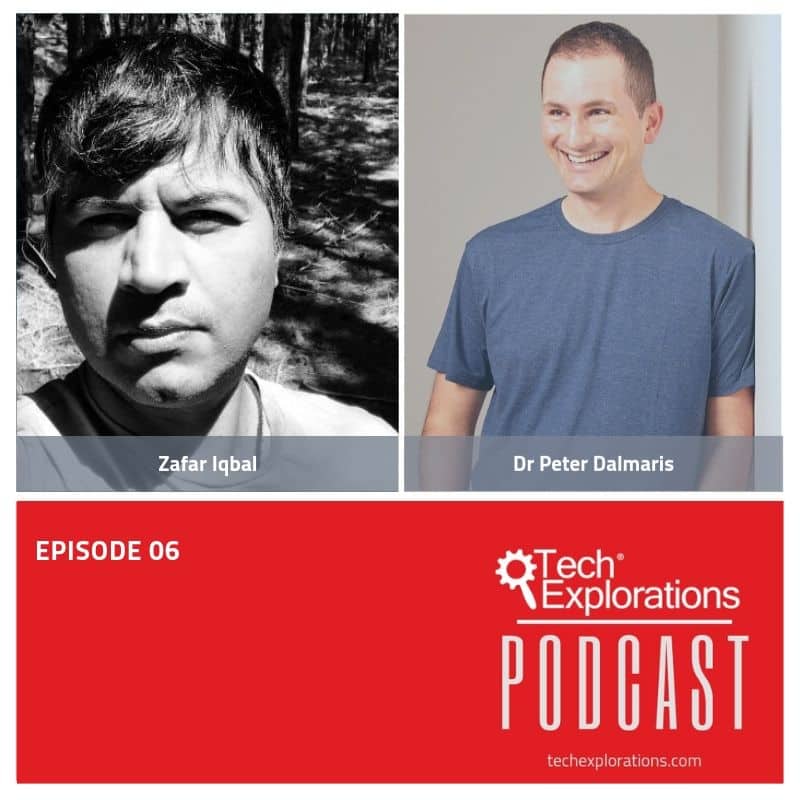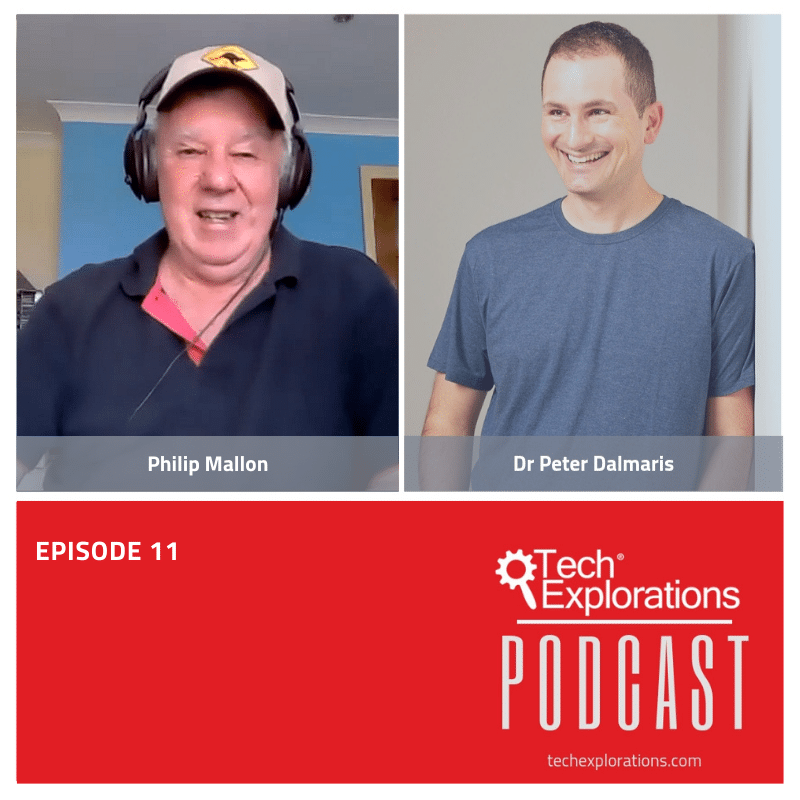I am excited to announce the re-publishing of all episodes from the Tech Explorations Podcast, a series designed to inspire, inform, and educate anyone passionate about electronics, programming, and STEM. Over the years, we’ve had the privilege of interviewing experts, educators, and enthusiasts from various fields, and now you have the chance to rediscover these conversations.
In this post, I want to mention some of the standout episodes that are part of the re-publishing effort. These episodes are only a sample of what you’ll find in this podcast series. They will enrich your understanding of some super-important technologies and inspire you to take the next step in your projects.
Wayne Stambaugh on KiCad’s Evolution and Future
Our episode with Wayne Stambaugh, the lead developer of KiCad, is a must-listen for anyone interested in PCB design and the world of open-source software. KiCad, as many of you know, is one of the most popular PCB design tools available today, especially for hobbyists and professionals who value its accessibility and flexibility.

In this conversation, Wayne discusses the evolution of KiCad, from its early days as a project maintained by a few dedicated developers to its current status as a powerful, feature-rich tool supported by a global community. Wayne delves into the major milestones in KiCad’s development, including introducing new routing features, 3D viewer enhancements, and the ever-important file format upgrades that made KiCad more interoperable with other design tools.
Wayne also gives listeners a peek into KiCad’s future. The roadmap includes exciting developments such as improved user interfaces, increased stability, and more advanced simulation tools. For open-source enthusiasts, this episode offers a rare insight into what it takes to maintain and develop software that is crucial to so many engineers and makers worldwide. Whether you are a long-time KiCad user or new to the software, this episode provides valuable context about the tool’s impact and direction.
Martin Zwigl on Embedded Systems Design
In our episode with Martin Zwigl, we dive deep into the world of embedded systems design. Martin’s career spans many years in the field, and his experiences offer a comprehensive look at the challenges and opportunities of designing systems that are often invisible but integral to modern electronics.

One of the core topics Martin discusses is the importance of optimization in embedded systems. Optimization is crucial since embedded systems are usually designed for specific tasks, often with limited resources like processing power or memory. Martin shares real-world examples of how developers can squeeze every bit of performance from these systems without sacrificing functionality or reliability.
Martin also discusses the field’s rapid advancements, including the rise of IoT (Internet of Things) devices and the increasing complexity of systems that need to operate under strict power constraints. This episode is an essential listen for anyone interested in the intricacies of embedded design.
Zafar Iqbal on Unusual Maker Stories
Zafar Iqbal is one of those guests who brings a unique perspective. In his episode, Zafar shares several “unusual maker stories” from his career. These stories highlight the creative and sometimes unconventional approaches makers take to solving problems or achieving their goals.

One standout story is about a maker who used everyday household items to prototype an invention that would become a successful product. Zafar’s storytelling clarifies that the maker movement thrives on innovation and creativity, regardless of the resources at hand.
In addition to the stories, Zafar reflects on the importance of community in the maker space. Whether through online forums, local maker spaces, or global competitions, makers find support and inspiration from each other. This episode is not just about the technical side of making; it’s also about the human element that makes this community so vibrant.
Philip Mallon on STEM Education and Mentorship
In our conversation with Philip Mallon, a veteran STEM educator and mentor, we explore the crucial role that education and mentorship play in fostering the next generation of engineers, scientists, and innovators. Philip has spent years teaching students about electronics, robotics, and programming, and in this episode, he shares his insights on what it takes to get students excited about STEM.

One of the key points Philip emphasizes is the importance of hands-on learning. For many students, simply reading about a concept in a textbook is not enough to truly understand it. By engaging with real-world projects and challenges, students can see the direct application of the theories they learn in the classroom. Philip discusses several projects he’s worked on with his students, ranging from simple electronics projects to more advanced robotics systems.
Philip also discusses the importance of mentorship, not just from teachers but also from industry professionals and community members. He believes that when students have role models actively working in their fields, it helps solidify their interests and gives them a clearer picture of what their future could look like.
For educators and mentors, this episode provides valuable strategies for engaging students and encouraging them to pursue STEM careers.
David Beamonte on Arduino, Cloud Computing, and IoT
David Beamonte’s episode offers a fascinating look at the intersection of Arduino, cloud computing, and IoT. David, a seasoned engineer passionate about innovation, explains how these technologies combine to create new possibilities in fields like smart home automation, healthcare, and industrial systems.

One of the main themes of this episode is the democratization of technology. Arduino has long been known as a tool that lowers the barrier to entry for electronics and programming. Now, with cloud computing and IoT integration, even small-scale developers and hobbyists can build systems that were once the domain of large corporations with significant resources.
David shares several practical examples of how Arduino-based systems can be connected to the cloud to gather data, perform analytics, and even control devices remotely. He also touches on security and data privacy challenges in IoT systems, offering advice on how developers can ensure their projects are safe and reliable.
For anyone interested in IoT or cloud-connected devices, this episode provides a wealth of knowledge on how to get started and what to watch out for as you build your own systems.
Here is the full list of the Tech Explorations podcast episodes. Enjoy!
